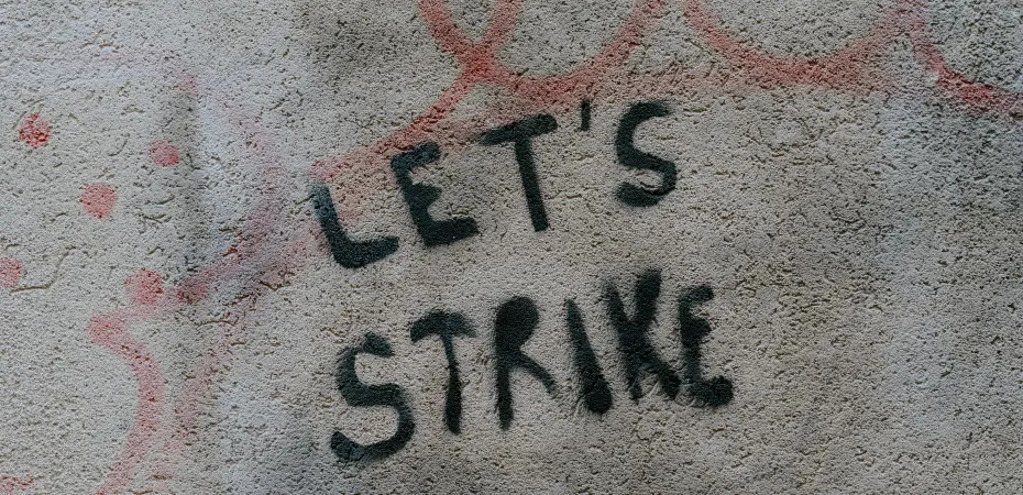TAs should be paid more. A lot more.
McMaster’s roughly 2900 teacher assistants (TA) and research assistants (RA) are currently on strike for fair wages, as they ostensibly make the living wage in Hamilton — little over $19 an hour — but mostly work part time hours. With student loans, pricey rent, and a general rising cost of living, TAs are struggling to get by on top of being obscenely exploited given that the service they provide is essential to the university.
TAs are mainly responsible for teaching freshman students. They are de facto instructors: running seminars, answering emails, marking a bulk of student’s works as well as furthering their own expertise in their given subject of study. TAs are necessary and their jobs are closer to the essence of the university than, say, a pool of admin making six-figure salaries.
The neoliberal model has completely tipped the scales of pay. As David Graeber’s work explores in his bestseller Bullsh*t Jobs, we have a cultural logic whereby folks whose jobs are actually socially useful and meaningful are paid less because their being meaningful is a reward in itself, as opposed to the administrative bureaucratic vassals that, though their titles emanate importance — “strategic finance officer,” “programs communications official,” “statistic oversight management,” “head of corporate wellbeing” — don’t do all that much and, often by their own testimony, find their jobs empty in many ways and therefore there’s an expectation to be compensated for this lost time in the form of high salaries.
The average salary of an administrator at McMaster is $97,500. Meanwhile, Ontario’s yearly median income for individuals is $56,000. In fact, a single administrator at McMaster makes roughly a little more than the average household income in Ontario and the average non-entry TA’s yearly salary on a full-time schedule with $25 an hour in Canada is a little under half of a McMaster administrator’s salary.
This is not to say that administrators shouldn’t make a comfortable living, it’s rather to point out that with the university becoming a business — a catchphrase that should ring familiar to most — in the 1980s means that university administration have taken on a kind of feudal structure as TAs are treated as peasants doing the essential upkeep, meanwhile professors who have to fill out so many task-master activities for all the administrators that they don’t have time to read and research.
Gayatri Spivak pointed out that there was a distinct shift in who one was referring to when they said “the university” after neoliberalization. Before, “the university” referred to the community of scholars, after neoliberalization it exclusively meant the administration.
I’m tempted to say that the university would benefit largely from adopting a decentralized model. For one, course contingency plans would be unencumbered by administrative red tape, making learning methods more flexible. Instead, disciplines can structure courses around the specific learning strategies required of a tried and tested pedagogy.
Furthermore, administrators would largely work to help with coordination as opposed to re-organization and the bureaucratic 3D ping pong that often takes place in that process and which accounts for a lot of the tasks administrators are doing today.
There are ancillary benefits to the coordination that a decentralized structure would provide, a lot of which could help the exploitation of TAs. First, it would aid in making “the university” refer to a community of scholars. Special needs could be especially catered to as this model would encourage meeting student’s needs through communication networks. Furthermore, decentralization could abate professors and graduate students having to compete for grants which often creates divides in learning and co-operation, as well as affecting the quality and methods of research in departments as more profitable work tends to get grants.
Not to mention, course requirements won’t be a matter of what year a student technically is but based on their highly specific learning trajectory.
The treatment of TAs is ultimately a symptom of the absolute state of the modern academy. Unfortunately, notions of decentralizing higher education are a pipedream in a market economy and the more immediate issue of TA exploitation is best remedied by their rising wages. However, the broader issue can’t be addressed until the current state of the economy is rethought.
Dr. Susan Tighe, provost and vice president of academics at McMaster claimed the university negotiated in good faith and that they were “disappointed” by the choice of TAs to go ahead with the strike. Tighe, according to a 2020 secretariat document, was making an annual base salary of $300,000 that year.
The McMaster situation is a matter of an out of touch, highly privileged university bureaucracy not playing fair with that substratum of teaching faculty that, in many ways, keep the university lights running.

